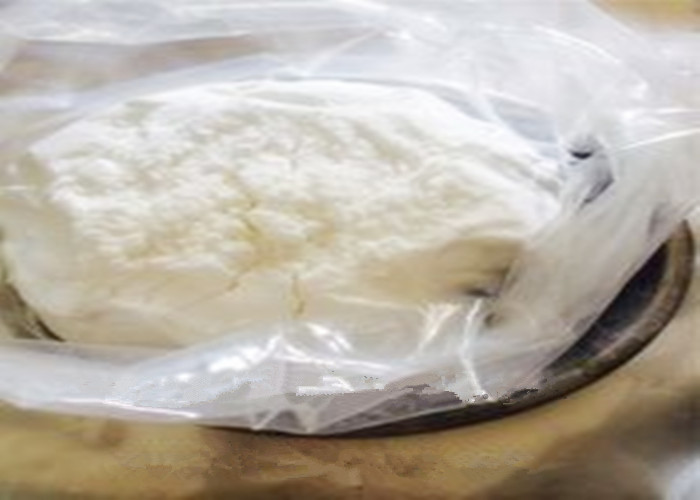86-027-88215853
Pharmacy Material Ibuprofen CAS 15687-27-1 for Anti-Inflammatory Analgesia Antipyretic / Whatsapp:+8615308670259
Basic Info
Product Name: Ibuprofen
CAS:15687-27-1
Customized: Customized
Suitable for: Adult
Purity: >98%
Einecs: 239-784-6
Molecular Weight: 206.28
Molecular Formula: C13h18o2
Appearance: White Crystalline Powder
Transport Package: Discreet Package for Delivery Guarantee
Origin: China
Certification: GMP, HSE, ISO 9001, USP, BP
Specification: Pharmaceutical Grade
HS Code: 2937290090
Description
Ibuprofen, from isobutylphenylpropanoic acid, is a nonsteroidal anti-inflammatory drug used for relieving pain, helping with fever and reducing inflammation. About 60% of people improve with any given NSAID and Ibuprofen is recommended that if one does not work that another should be tried.Ibuprofen might be considered a weaker anti-inflammatory than other NSAIDs.Ibuprofen may also be used to close a patent ductus arteriosus in a premature baby. Ibuprofen can be used by mouth or intravenously. Ibuprofen typically begins working within an hour.
Ibuprofen is used primarily for fever (including postimmunisation fever), mild-to-moderate pain (including pain relief after surgery), painful menstruation, osteoarthritis, dental pain, headaches and pain from kidney stones. Ibuprofen is used for inflammatory diseases such as juvenile idiopathic arthritis and rheumatoid arthritis.Ibuprofen is also used for pericarditis and patent ductus arteriosus.
Indication
For symptomatic treatment of rheumatoid arthritis, juvenile rheumatoid arthritis and osteoarthritis. May be used to treat mild to moderate pain and for the management of dysmenorrhea. May be used to reduce fever. Has been used with some success for treating ankylosing spondylitis, gout and psoriatic arthritis. May reduce pain, fever and inflammation of pericarditis. May be used IV with opiates to relieve moderate to severe pain. Ibuprofen lysine may be used IV to treat patent ductus arteriosus (PDA) in premature neonates.
Pharmacodynamics
Ibuprofen is a nonsteroidal anti-inflammatory agent (NSAIA) or nonsteroidal anti-inflammatory drug (NSAID), with analgesic and antipyretic properties. Ibuprofen has pharmacologic actions similar to those of other prototypical NSAIAs, which are thought to act through inhibition of prostaglandin synthesis.
Mechanism of action
The exact mechanism of action of ibuprofen is unknown. Ibuprofen is a non-selective inhibitor of cyclooxygenase, an enzyme invovled in prostaglandin synthesis via the arachidonic acid pathway. Its pharmacological effects are believed to be due to inhibition cylooxygenase-2 (COX-2) which decreases the synthesis of prostaglandins involved in mediating inflammation, pain, fever and swelling. Antipyretic effects may be due to action on the hypothalamus, resulting in an increased peripheral blood flow, vasodilation, and subsequent heat dissipation. Inhibition of COX-1 is thought to cause some of the side effects of ibuprofen including GI ulceration. Ibuprofen is administered as a racemic mixture. The R-enantiomer undergoes extensive interconversion to the S-enantiomer in vivo. The S-enantiomer is believed to be the more pharmacologically active enantiomer.
Ibuprofen Side Effects
Common side effects include heartburn and a rash.Compared to other NSAIDs it may have fewer side effects such as gastrointestinal bleeding.Ibuprofen increases the risk of heart failure, kidney failure, and liver failure.At low doses, Ibuprofen does not appear to increase the risk of myocardial infarction; however, at higher doses it may. Ibuprofen may result in worsened asthma.While it is unclear if it is safe in early pregnancy,Ibuprofen appears to be harmful in later pregnancy and therefore is not recommended.Like other NSAIDs, Ibuprofen works by inhibiting the making of prostaglandins by decreasing the activity of the enzyme cyclooxygenase.Ibuprofen might be a weaker anti-inflammatory than other NSAIDs.
Compared to other NSAIDs it may have fewer side effects such as gastrointestinal bleeding.
At low doses it does not appear to increase the risk of myocardial infarction;
however, at higher doses it may. It may result in worsened asthma.
Like other NSAIDs, it works by inhibiting the synthesis of prostaglandins,
which are fat-like molecules derived from arachidonic acid, which are involved in mediating
inflammation (swelling), pain, and fever. It achieves this effect on prostaglandin synthesis by
inhibiting cyclooxygenase, an enzyme that is present in various tissues of the body.
Any needs, please feel free to contact me.
Whatsapp:+8615308670259
Skype:+8615308670259
